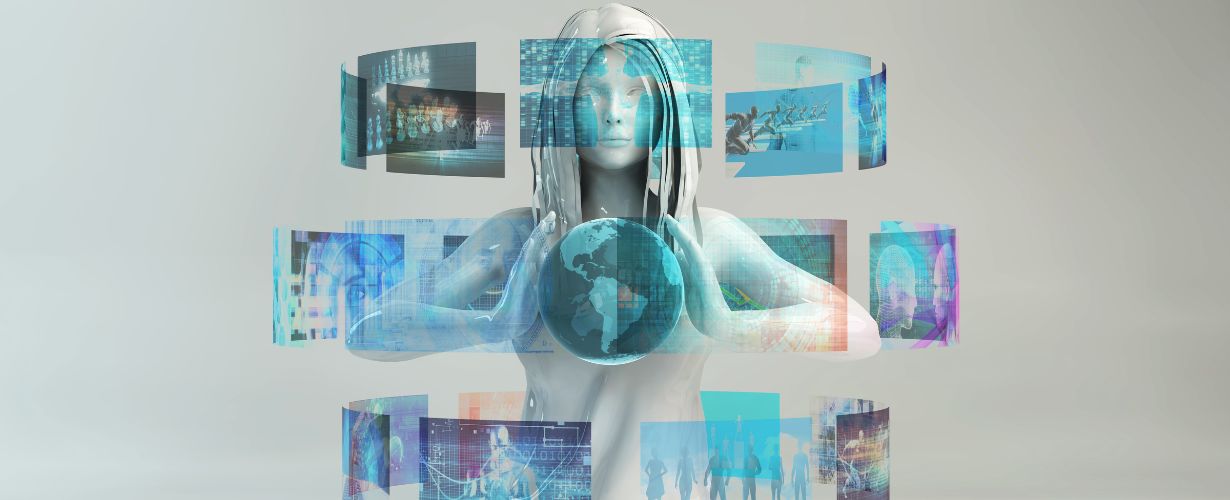As we carry on with our sales and ethics series, let’s pose this question: What is ethics, really?
We can begin by pointing that ethics isn’t found only in the mind, or strictly in the heart, but in both. Real ethics requires a 2-way highway between the mind and the heart. The mind contains the understanding of what is correct, right or wrong, and the heart, through emotions, usually follows. Many people, though, follow strictly one or the other.
Ethics means combining both the heart and mind—something that cannot be done if one only follows strict rationale such as law. A person might have broken the law and, therefore, need to be judged and punished for their actions. The heart, though, with compassion, might perceive that there was a reason the person did what they did, which brings another component into the equation besides hard, cold logic, and could thereby bring about an understanding of what occurred.
Beyond Simply Black and White
The challenge we face is in this sort of judgment. We cannot judge based only on outside appearances and actions—we have to look inside. Reduction of ethics to one single problem and formula doesn’t work. We live in a multidimensional, complex world that most definitely is not black and white.
The street map of a city might be a fair comparison. Unlike most cities in the United States, European cities have been built and rebuilt over hundreds and often thousands of years. Instead of all the streets being straight with neatly arranged blocks as is often seen in America, many streets are diagonal and twisting.
As long as one hasn’t subverted their own consciousness, the mind contains a native understanding of right and wrong. We don’t have to tell a salesperson that bribing a potential customer is wrong—they instinctively know it. They know that making a false promise only to accomplish a deal is not right.
Conversely, a judgment made honestly from the heart might indicate a basically moral action that may not be totally “correct.” For example, a person might drive a delivery truck for a specialty food company, and the company policy is that once a day is over, any leftover food is to be disposed of. The driver might see someone who is starving and desperate, and instead of discarding the day-old food, the driver might give the food to that person without informing the delivery company. That action may not be totally “right,” but it is certainly moral.
Making use of such judgment requires a clear and open highway between mind and heart. This highway must run both ways, not in one direction only. When someone has that functioning highway, they truly have a moral compass.
Humans Before Others
Applying this judgment to the world around us is crucial. Humans are the most essential aspect of our world—if they were to go, there would be no more humanity or sentient life. We constantly get more and more humans around us, but we increasingly lose appreciation for them. We seem, today, to be more concerned about what is happening to a plant or an animal than a human.
Don’t misunderstand me—it is obviously vital that we save the planet. But when people are more upset about rescuing a dog than a baby who is truly in need, something is wrong.
We Must Include Preferences
As we covered earlier in this series, preferences have a profound influence on ethics. A preference of just maintaining life or a business on an even flow means you’re not taking care of the moment you are in.
In the last article, we took up the two approaches to time enumerated by the ancient Greeks: sequential time, called Chronos, and the taking of a particular moment for itself, called Kairos. We all have the challenge of living today because we don’t know if we’ll be living tomorrow. As humans with minds, though, we learn to plan for tomorrow—otherwise, we cannot create or build something.
In the same way that life requires the duality between a man and a woman, utilizing both these approaches to time also requires a duality. A man and a woman are equal but undoubtedly different. It is a beautifully lived dynamic when man and woman live in harmony.
These two preferences also necessitate a combined dynamic. Chronos would mean planning for the long term, but Kairos would be enjoying and living for today, where we could celebrate and do something good. Kairos would also apply to helping others as in the time of crisis. That would involve engaging today, not tomorrow.
These two extremes create a tension between them. We must learn to live by this tension and where needed to overcome it. Similarly, we have the tension between, and the combination of, the mind and the heart.
Steer Clear of the “Ethical Checklist”
You have observed, reading thus far, that ethics doesn’t work as some kind of checklist. Such a checklist would be like suiting someone in armor, restricting them from the outside. Ethics cannot be a restriction from the outside—ethics consists of living from the inside out.
Focusing in on the area of sales, a sales managerSales Manager Sales Manager is an executive who leads a sales unit, team or department by setting goals and meeting targets, formulating plans and policies, designating tasks, and developing salespeople. won’t make it operating simply by an ethical checklist. They must learn to be a role model and to leadLead Lead refers to a prospect or potential customer (who can be an individual or organization) that exhibits interest in your service or product; or any additional information about such entity. by example. They have to be a mentor through moral behavior and treat their sales team so that they are supporting them. They should motivate them and not harshly judge them if they make mistakes because, as I have always said, a mistake is an invitation to “do it again,” only the right way.
Every individual is armed with a set of ethical standards, a set of principles. Leadership must help hone and shape these standards.
The Result of Wisdom
Wisdom results from the molding of these standards.
How can we define wisdom? Wisdom is knowledge practiced over time. It comes about from continually performing actions correctly—it doesn’t come about from one moment to another.
Wisdom is, realistically, superior to mere rules. Salespeople will experience the need in sales situations to take correct actions. I’m not saying it will always be the case, but wisdom may dictate putting a rule aside.
Learning wisdom to deal with each individual situation is our constant challenge. As with most other functions, wisdom is a learning process and is learned in iterations like software programming. A person should strive for wisdom over and above pride or status. Such things will disappear and, in fact, can be gone instantly.
Most sales ethics books delineate a catalog of actions for salespeople to engage in or not. Following such a list will not help someone learn to be wise.
Ethics could be defined another way: applying true wisdom to a situation. Such application results in sound judgment. People certainly notice and will point out good judgment. That is what we expect from judges, but today, judges have become so political that the critical institutions we have created over thousands of years are falling apart. A judge is no longer a judge.
Another outcome of wisdom is self-control and thought process control. Bad thoughts can easily circle one’s mind, but the fault lies in allowing them to settle and nest there.
An old proverb that I particularly treasure is: “A gentle answer turns away wrath, but a harsh word stirs up anger.” The challenge in a critical situation is, through wisdom, to provide that gentle answer. Salespeople too often lash out if they don’t obtain the result that they want. The outcome of giving a gentle answer to someone who is rude is often peace.
A peaceful society could be said to be the eventual outcome of applied wisdom. Therefore, as a salesperson, you must be ethical and learn to be patient. I admit it—this is hard for me, too! But your heart, and our hearts, at peace, bring life to everyone.





